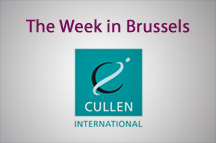 In parallel with the ongoing discussions on the revision of the telecoms regulatory framework, operators and regulatory authorities are considering the future shape of the market and what the appropriate triggers should be for sector-specific regulation.
In parallel with the ongoing discussions on the revision of the telecoms regulatory framework, operators and regulatory authorities are considering the future shape of the market and what the appropriate triggers should be for sector-specific regulation.
To consolidate or not?
A recent exchange of views in France highlights the debate. Sebastien Soriano, president of French telecoms regulator ARCEP, has rejected the need for market consolidation (the term ‘market repair’ is now commonly being used), calling it neither necessary nor desirable. Consumers would not benefit and infrastructure investment would be delayed, said Soriano. By contrast, Gervais Pelissier, the deputy CEO of Orange, has spoken about the French market being prime for consolidation, with operators currently struggling to make the right returns on their infrastructure investments.
How to deal with oligopolies?
At the same time, the European Commission is looking at whether it should be easier to gather evidence to support the triggering of sector-specific regulation in the case of oligopolistic markets. The Commission has launched a call for inputs on its (admittedly, rather esoteric) significant market power (SMP) guidelines, which aim to assist telecoms regulators when they review markets to assess whether a dominant (SMP) player exists, thereby triggering regulations.
The clear focus in the Commission’s questionnaire (accounting for around half of the questions) is on the assessment of collective (or joint) SMP, i.e. whether members of an oligopoly are colluding tacitly. (The element of tacitness is critical, as anticompetitive agreements or concerted practices are always subject to EU competition law under article 101 of the TFEU.)
BEREC, the ‘club’ of EU telecoms regulators, has proposed a solution that would allow sector-specific regulation in the case of so-called ‘tight oligopolies’ falling short of collective dominance, i.e. without any tacit collusion. The Commission has so far not publicly responded to the BEREC proposal.
 Competition law and telecoms mergers
Competition law and telecoms mergers
Since the appointment of Margrethe Vestager as EU competition commissioner, the Commission’s approach to telecoms mergers between direct competitors seems to have toughened considerably. Mergers that reduced the number of mobile operators from four to three were cleared (with conditions) by Ms Vestager’s predecessor, Joaquín Almunia, in Austria, Ireland and Germany. However, more recent mergers in Denmark (TeliaSonera/Telia) and the UK (Hutchison/Telefónica) failed to win clearance. In Italy, the Commission cleared the Hutchison/Wind merger but only after the parties agreed to divestments that would allow a new operator, Iliad, to enter the market.
Ms Vestager herself has said that, as with any other efficiency claim, “the ‘consolidation leads to investment’ argument needs to be looked at very carefully” and in particular whether the benefits claimed are “credible and likely, merger-specific, and with benefits for end-consumers as opposed to shareholders”. Operators have so far failed to convince her.
Talk but no real change?
Perhaps, despite all the discussions, the most likely outcome is that not much will change.
Significant further market consolidation seems unlikely, given the Commission’s tougher competition stance on mergers between competing operators, so today’s market structure is likely to continue. This means regulators will continue to find it difficult to regulate oligopolistic markets, since the Commission’s current consultation seems to aim more at clarification than substantive change and does not address BEREC’s proposal for a lighter regulatory trigger.












